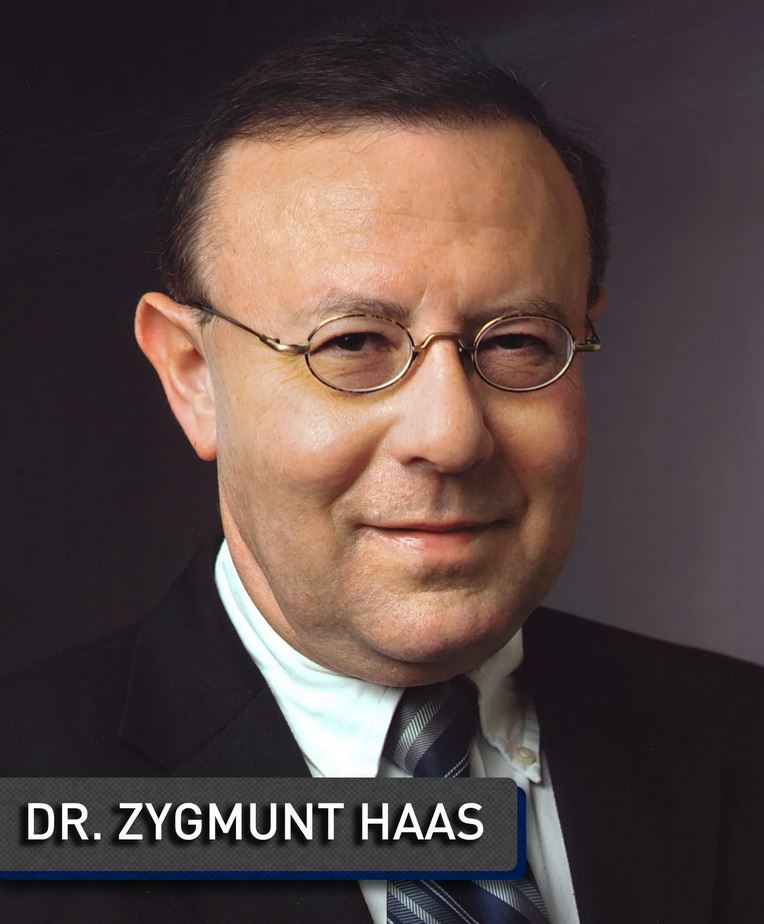Dr. Zygmunt Haas Named ACM Fellow for Computing Advances that are Driving Innovation

Innovators Honored for Work in Areas Including Algorithms, Education, Cryptography, Security and Privacy, Medical Informatics, and Networks
The Association for Computing Machinery (ACM) has named 71 members as ACM Fellows for wide-ranging and fundamental contributions in areas including algorithms, computer science education, cryptography, data security and privacy, medical informatics, and mobile and networked systems ─ among many other areas. The accomplishments of the 2021 ACM Fellows underpin important innovations that shape the technologies we use every day.
Of those 71 new members named was UT Dallas CS Professor and Distinguished Chair Dr. Zygmunt Haas. Dr. Haas is an author of over 300 technical papers and holds twenty-one patents in the fields of high-speed networking, wireless networks, and optical switching. He has organized several workshops, delivered numerous tutorials at major IEEE and ACM conferences, and has served as editor of several journals and magazines. His research focuses on the proliferation of wireless and mobile communication to allow ubiquitous, multi-media access to information and services by mobile and stationary users. Dr. Haas’s research interests concentrate on two fields: Wireless Communications and Mobile Systems, and Biologically-inspired Complex Systems and Networks. Dr. Haas is also an IEEE Fellow, IET Fellow, and EAI Fellow. In the past, He has served as a Chair of the IEEE Technical Committee on Personal Communications (TCPC).
“It is a great honor being named an ACM Fellow, and Zygmunt well deserves this award. It adds to Zygmunt’s other awards and recognitions and makes him the second UTD faculty to become an ACM Fellow while at UTD. This prestigious award not only recognizes the high achievements of the faculty but also reflects over the department. I am happy to count Zygmunt among my colleagues,” noted Dr. Ovidiu Daescu, UT Dallas Computer Science Interim Department Head.
The ACM Fellows program recognizes the top 1% of ACM members for their outstanding accomplishments in computing and information technology and/or outstanding service to ACM and the larger computing community. Fellows are nominated by their peers, with nominations reviewed by a distinguished selection committee.
“Computing professionals have brought about leapfrog advances in how we live, work, and play,” said ACM President Gabriele Kotsis. “New technologies are the result of skillfully combining the individual contributions of numerous men and women, often building upon diverse contributions that have emerged over decades. But technological progress would not be possible without the essential building blocks of individual contributors. The ACM Fellows program honors ACM members’ creativity and hard work whose specific accomplishments make broader advances possible. In announcing a new class of Fellows each year, we celebrate the impact ACM Fellows make, as well as the many technical areas of computing in which they work.”
In keeping with ACM’s global reach, the 2021 Fellows represent universities, corporations, and research centers in Belgium, Canada, China, France, Germany, India, Israel, Italy, and the United States.
The contributions of the 2021 Fellows run the gamut of the computing field―including cloud database systems, deep learning acceleration, high-performance computing, robotics, and theoretical computer science ─ to name a few.
ABOUT THE UT DALLAS COMPUTER SCIENCE DEPARTMENT
The UT Dallas Computer Science program is one of the largest Computer Science departments in the United States with over 4,000 bachelors-degree students, more than 1,010 master’s students, 140 Ph.D. students, 52 tenure-track faculty members, and 42 full-time senior lecturers, as of Fall 2021. With the University of Texas at Dallas’ unique history of starting as a graduate institution first, the CS Department is built on a legacy of valuing innovative research and providing advanced training for software engineers and computer scientists.




